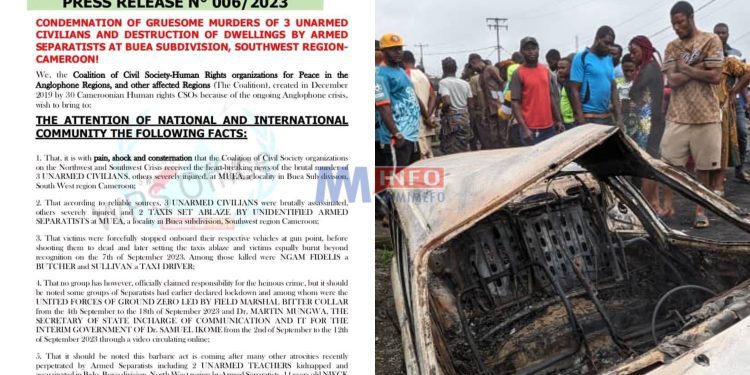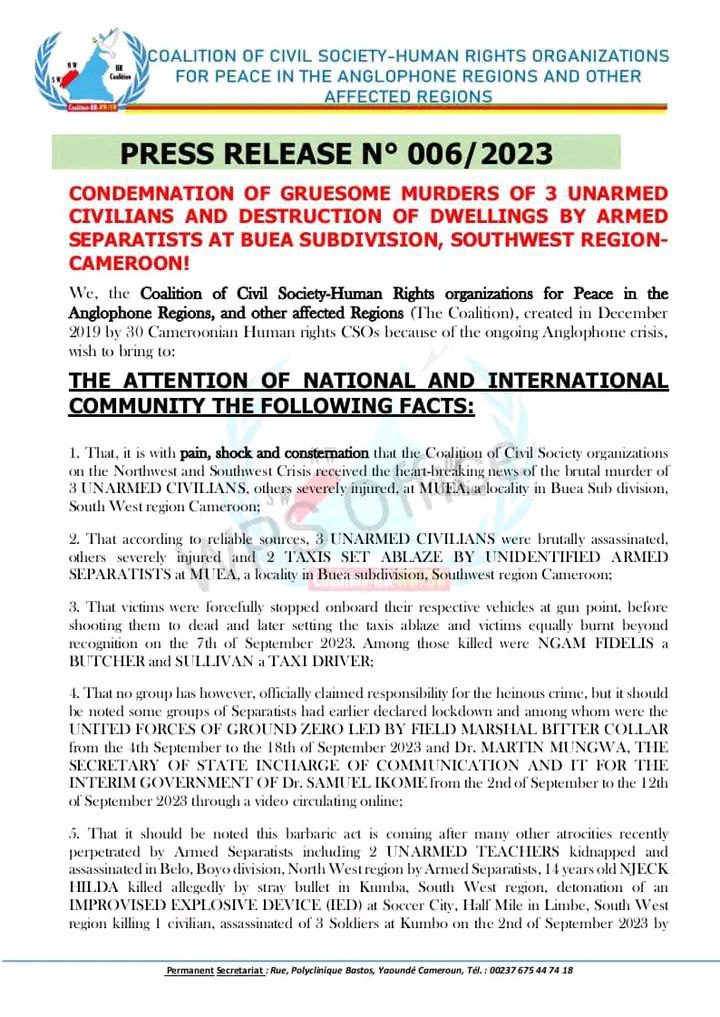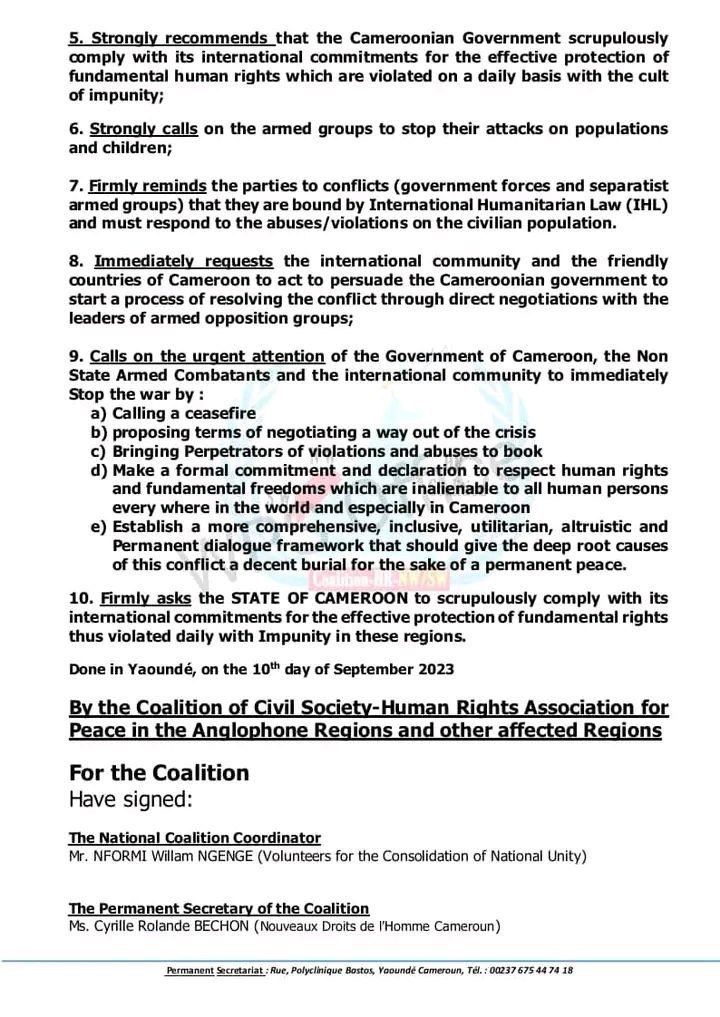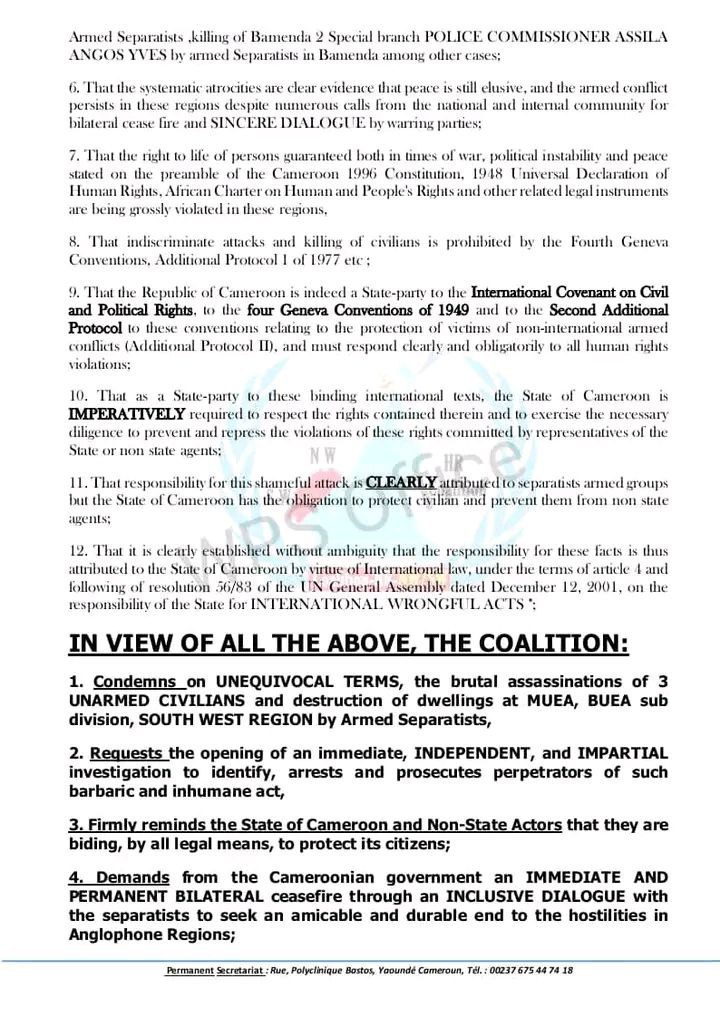A coalition of civil society and human rights organisations in Cameroon has reiterated the need for the Cameroon Government to dialogue with Ambazonia separatists, to avert further deaths and destructions in the two crisis-hit English-speaking Regions.
The CSOs joined many other groups and individuals to condemn the killing of three unarmed civilians in Muea, Buea, by separatist fighters last week and stated that dialogue and negotiation are the best ways out of the crisis.
In a release dated September 10, the CSOs also urged the international community to pressure the Cameroon Government to negotiate with the separatists, who have been clamouring for an independent state, Ambazonia, since 2017.
“We immediately request the International Community and friendly countries of Cameroon to persuade the Cameroon Government to start a process of resolving the conflict through direct negotiations with leaders of armed opposition groups,” the CSOs stated.
“We demand from the Government of Cameroon an immediate and permanent bilateral ceasefire through an inclusive dialogue with the separatists, to seek an amicable and a durable end to hostilities in the Anglophone Regions.”
Condemnation Of Separatist Attacks On Civilians
The coalition was not indifferent to the armed attacks and killings that have rocked the two Anglophone Regions in the last week. At least eight civilians died in the said attacks, which occurred in Buea, Belo, Kumba, Lebialem, and Limbe.
“We condemn on equivocal terms the assassination of three unarmed civilians and the destruction of dwellings in Muea Buea, South West Region, by armed separatists. We call on armed groups to stop attacks on populations and children,” the CSO, wrote.
Among these killings were those of two head teachers in Belo and the Police Commissioner in Bamenda II; the killing of three civilians in Muea, Buea; the killing of Njeck Hilda by a stray bullet in Kumba; the detonation of an explosive at the Half Mile, Limbe, which killed a bike rider, among other cases.
Ambazonia separatists were blamed for these killings, except for those in Limbe and Kumba.
Call For Dialogue
Civil society organizations, religious authorities, and the international community have for many years now echoed the need for the Cameroon Government to dialogue with separatists.
But the calls have never been heeded. A 2019 “Major National Dialogue”, where separatists were excluded, has so far failed to achieve peace in the Anglophone Regions.
The coalition of CSOs thinks the International Community should force the Cameroonian Government to organise a fresh dialogue with separatists.
“Calling a ceasefire, proposing terms for negotiating a way out of the crisis, bringing perpetrators of violations and abuses to book, establishing a more comprehensive, inclusive, utilitarian, and permanent dialogue framework that should give the deep-rooted root causes of this conflict a decent burial for the sake of a permanent peace.”
The international community has, however, tried several times to get the government and separatists to the dialogue table, to no avail.
In a recent interview with My Media Prime, the EU Ambassador to Cameroon, Philippe Van Damme, said it was not the role of the international community to resolve the conflict in the English-speaking Regions of Cameroon.
He said it would be better resolved by Cameroonians and that the international community was trying not to meddle in African affairs as much as it used to.
The conflict in the English-speaking Regions of Cameroon, now in its sixth year, has killed over 6,000 people and displaced more than 700,000 others.






